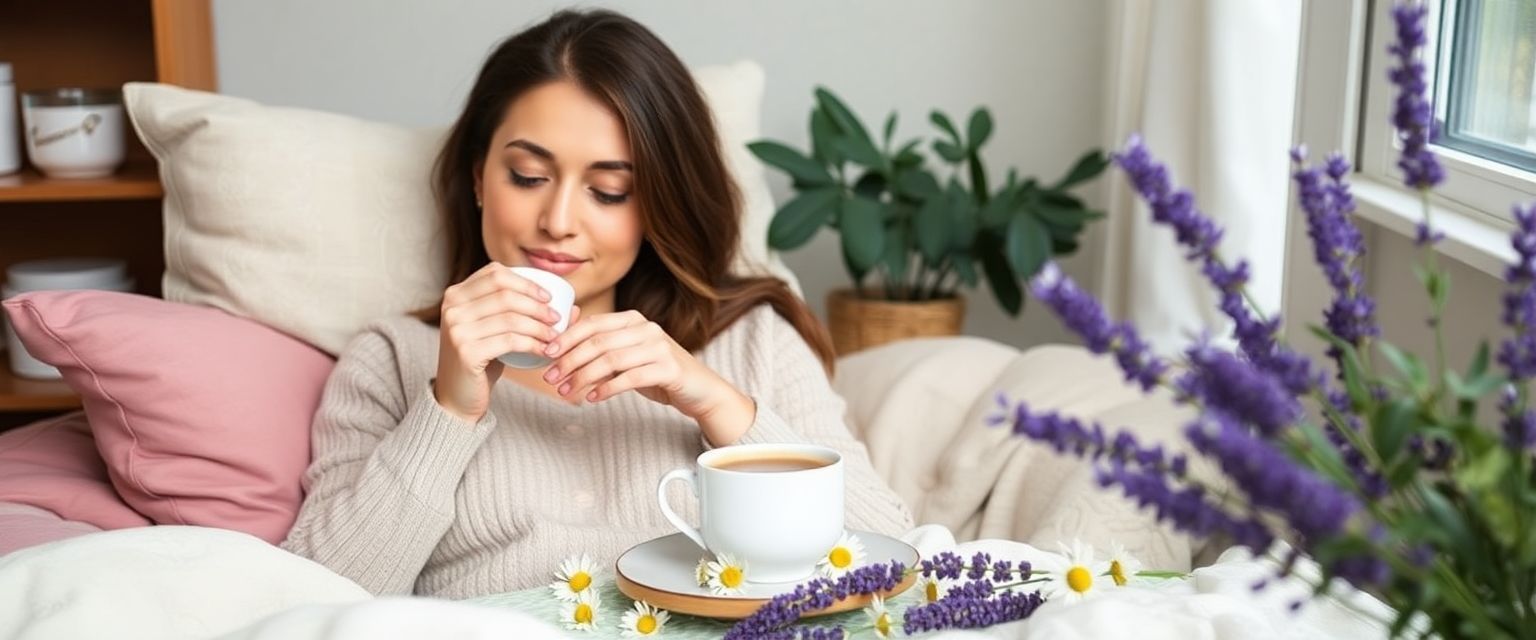In our fast-paced world, finding restful sleep can feel like an elusive goal. But what if the key to better sleep was as simple as brewing a cup of tea?
Let’s explore the science behind calming teas and dive into 10 varieties that can help improve your sleep quality.
The Science of Soothing Teas
Before we look at our curated list of sleep-enhancing teas, it’s crucial to understand how they work. Many herbal teas contain compounds that interact with our nervous system, promoting relaxation and preparing our bodies for sleep.
Some herbs increase the production of neurotransmitters like gamma-aminobutyric acid (GABA), which helps calm the mind. Others contain natural sedatives or melatonin precursors that regulate our sleep-wake cycle.
The act of sipping warm tea itself can be a soothing ritual, signaling to your body that it’s time to wind down.
Now, let’s explore 10 teas that can help you achieve a more restful night’s sleep.
1. Chamomile
Chamomile has earned its reputation as the go-to bedtime tea for good reason. This daisy-like flower contains apigenin, an antioxidant that binds to specific receptors in your brain, potentially decreasing anxiety and initiating sleep.
A 2011 study published in the European Neuropsychopharmacology journal found that chamomile extract demonstrated benzodiazepine-like hypnotic activity, suggesting its potential as a mild sedative.
To prepare chamomile tea, steep one tea bag or a tablespoon of dried chamomile flowers in hot water for 5-10 minutes. For added sweetness, try a drizzle of honey, but avoid milk as it can reduce the herb’s effects.
Recommended Product:
Cederberg Organic Chamomile Tea – Packed with beautiful chamomile harvested at its peak, our tea is so bold and flavorful you can use each herbal tea bag twice. With no individual wrappings, each pouch can hold 100 bags of caffeine-free organic tea. These organic tea bags are made of renewable acaba and cellulose fibers from sustainable plants. Oxygen whitened, never bleached, and are free of glues and tags so they are completely compostable tea bags.
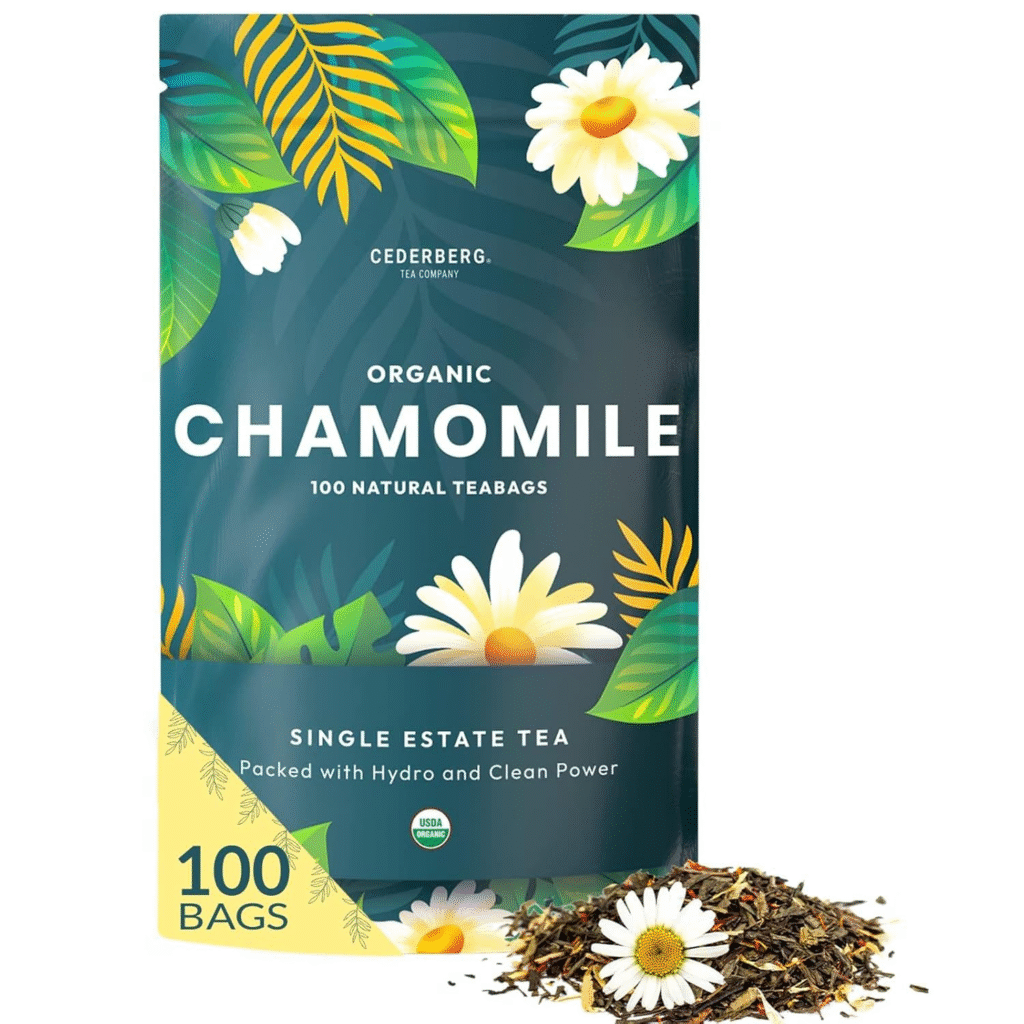
2. Valerian Root
Often referred to as “nature’s Valium,” valerian root has been used for centuries to promote sleep and reduce anxiety. Its effectiveness comes from its ability to increase levels of GABA in the brain, promoting calmness and better sleep quality.
A systematic review published in the American Journal of Medicine in 2006 found that valerian root may improve sleep quality without producing side effects.
To prepare valerian root tea, steep it for 5-10 minutes. Be warned: it has a strong, earthy aroma that some find unpleasant.
Mixing it with more palatable herbs like mint or lemon balm can help mask the taste while still reaping the benefits.
Recommended Product:
Organic Way Valerian Root Cut & Sifted – This valerian root is cultivated with unwavering commitment to organic farming practices. It is devoid of herbicides, and GMOs, guaranteeing you a genuinely natural and unadulterated product. Whether you prefer it in teas, tinctures, or infusions, this valerian root is ready to enhance your relaxation routine. Its earthy flavor adds a soothing touch to your herbal blends.
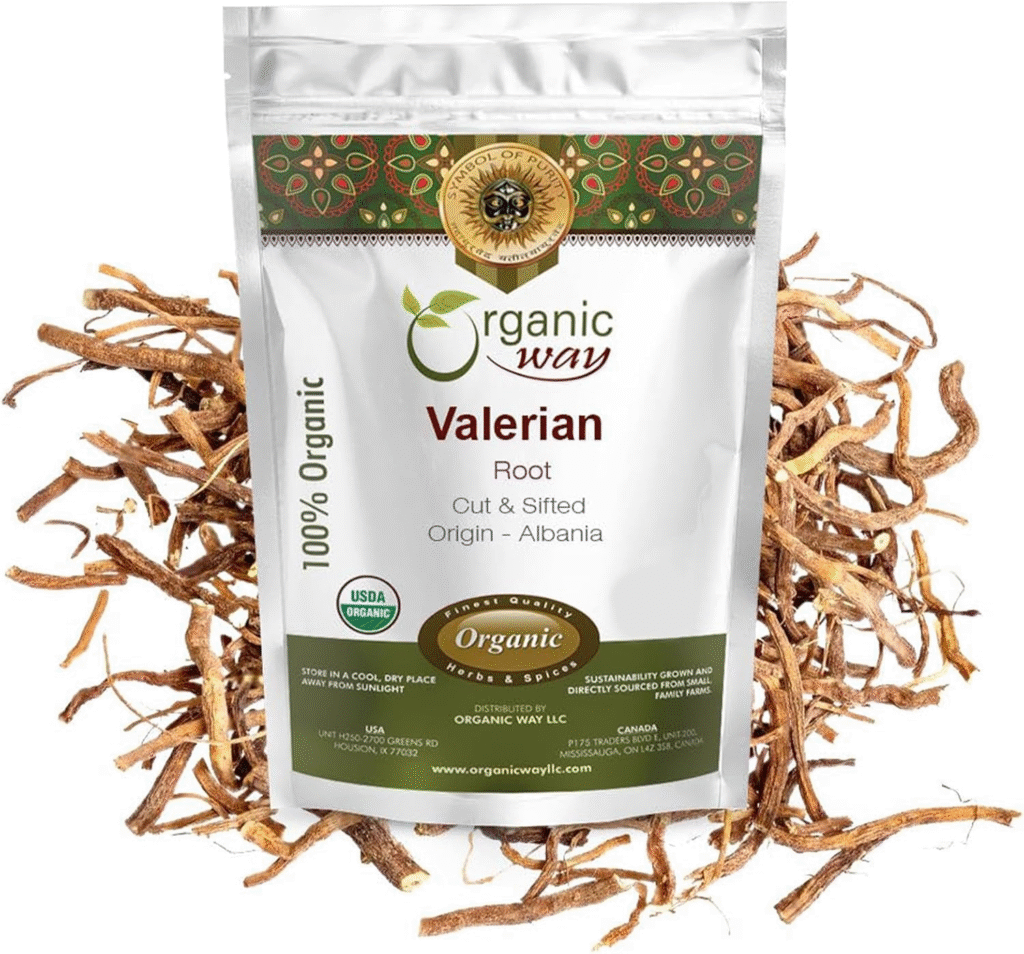
3. Lavender
While lavender is often associated with aromatherapy, drinking lavender tea can also have calming effects. The scent alone can lower heart rate and blood pressure, setting the stage for sleep.
A study published in the Journal of Alternative and Complementary Medicine in 2015 found that lavender tea consumption significantly improved sleep quality in postnatal women.
To prepare lavender tea, use dried lavender buds or a lavender tea bag. Steep for 5 minutes and inhale the aroma as you sip.
For an extra relaxing experience, pair your tea with a lavender-scented candle or pillow spray to create a multi-sensory calming environment.
Recommended Product:
Buddha Teas Organic Lavender Tea – This organic Tea is made with no artificial flavors, Preservatives, additives, or GMOs. Packed in bleach-free tea bags, and mild in caffeine, enjoy a cup of lavender tea any time of day. Buddha’s Organic lavender tea boasts many health benefits, including supporting healthy sleep patterns, brain function, and relieving symptoms of anxiety. Plus, it is packed with antioxidants, vitamins, and minerals.
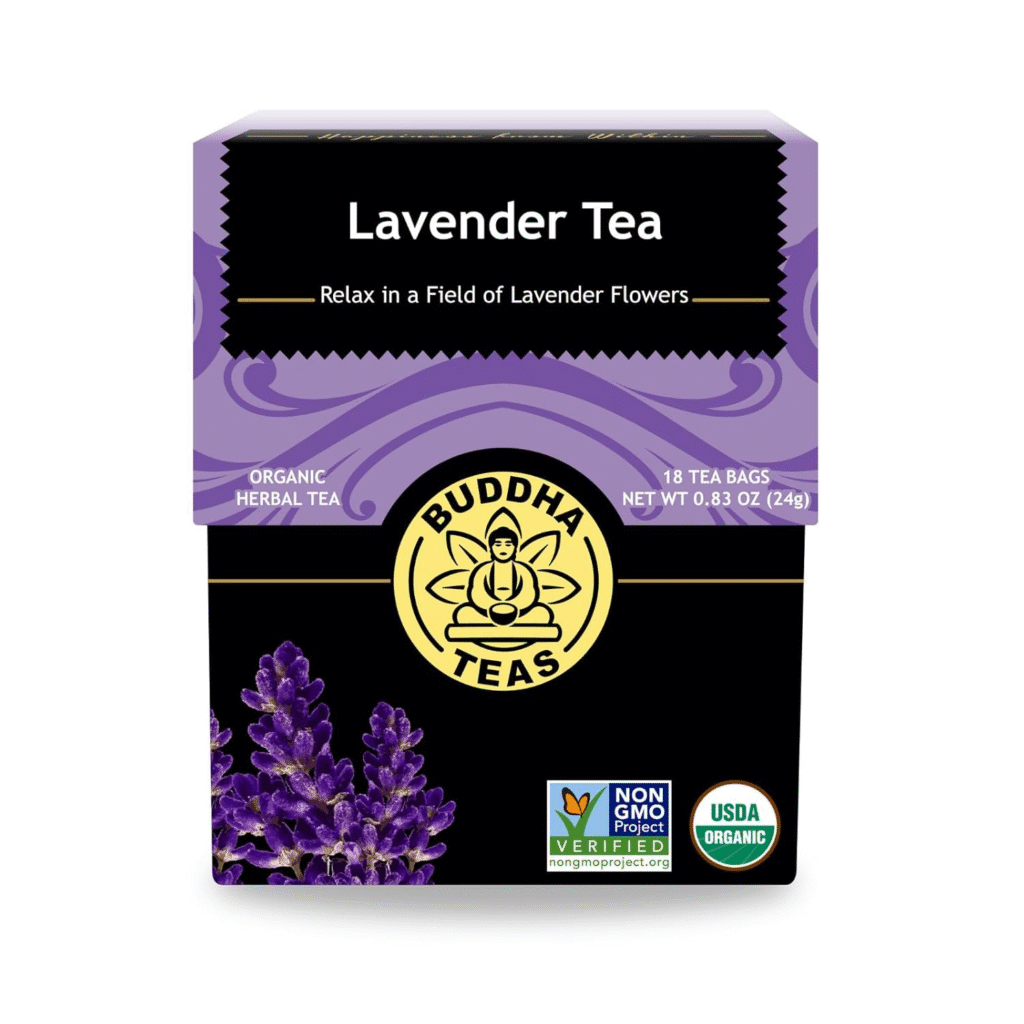
4. Passionflower
Passionflower tea is particularly effective for those whose sleeplessness is caused by racing thoughts or anxiety. It’s believed to boost GABA levels in the brain, promoting relaxation and better sleep.
A 2011 study published in Phytotherapy Research found that passionflower tea improved sleep quality in adults with mild sleep problems.
To prepare passionflower tea, steep it for 5-7 minutes. Its flavor is mild and slightly earthy, so you might want to blend it with other herbs or add a bit of honey for taste.
Recommended Product:
Tadin Tea, Pasiflora – Passion Flower Tea – This tea is 100% Natural. It Improves Sleep Quality and Can help relieve symptoms of menopause.
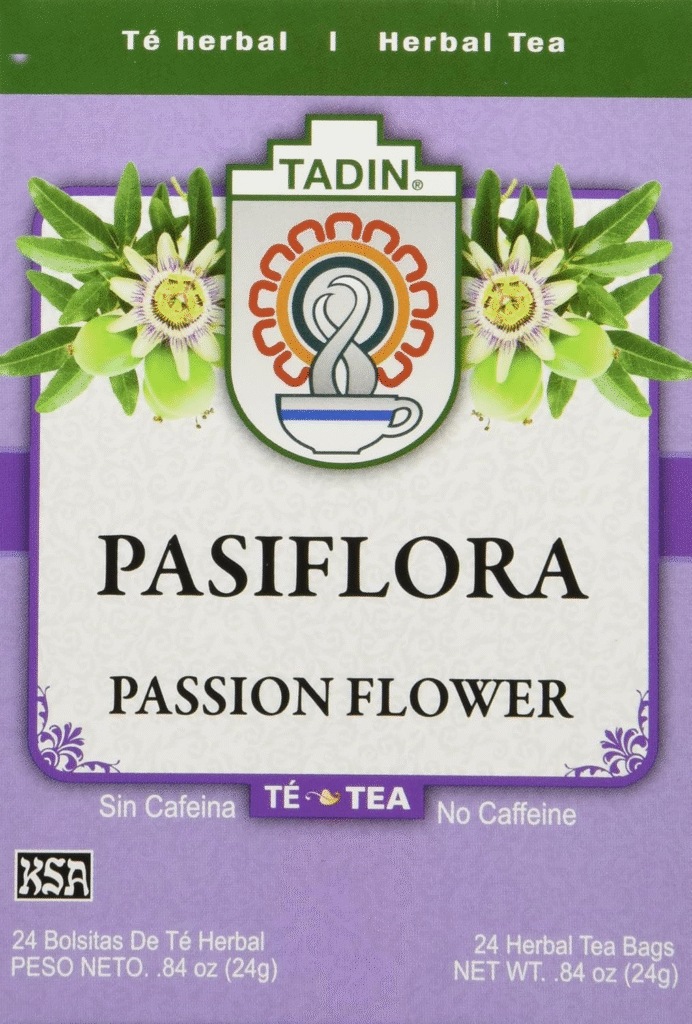
5. Lemon Balm
Part of the mint family, lemon balm has been used since the Middle Ages to reduce stress and anxiety, promote sleep, and improve appetite. It has a pleasant, lemony flavor that can help calm a troubled mind.
A 2011 study in the Mediterranean Journal of Nutrition and Metabolism found that lemon balm extract improved mood and cognitive performance.
To prepare lemon balm tea, steep the leaves or a tea bag for 5-10 minutes. The longer you steep, the stronger the calming effects will be.
Its bright, citrusy flavor makes it enjoyable on its own or paired with other herbs.
Recommended Product:
Wildfield herbs Lemon Balm Tea – 100%. Dried Lemon Balm leaves are steeped in hot water to create a rich tea. This tea is believed to have goodproperties. Country of origin of Melissa Officinalis tea herb: Europe. These Dried Lemon Balm leaves have been grown, carefully harvested, specially dried and specially packaged to ensure that they reach the customer in the freshest and most fragrant condition.
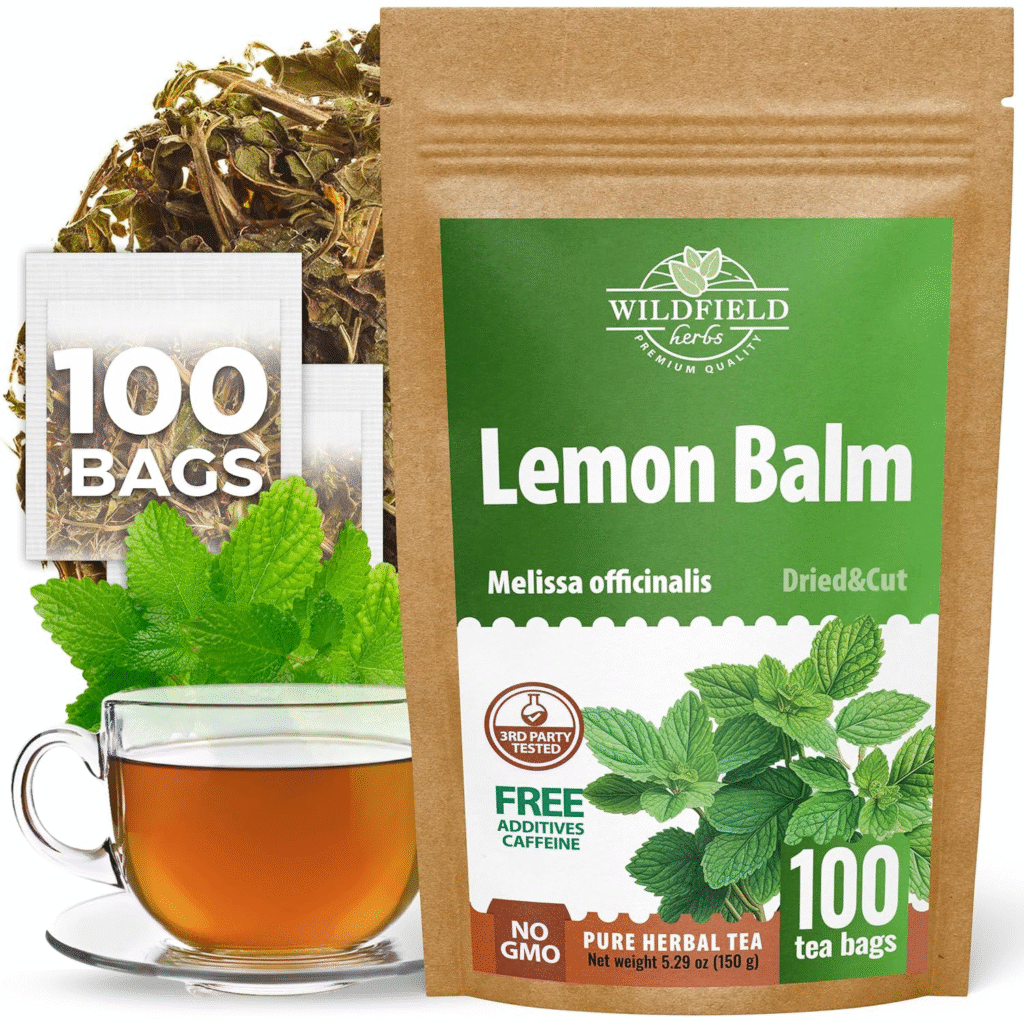
6. Magnolia Bark
Used in traditional Chinese medicine for centuries, magnolia bark tea is known for its sleep-promoting and anxiety-reducing properties. It contains compounds that may help you fall asleep faster and improve sleep quality.
A 2012 study in the Journal of Ethnopharmacology found that magnolia bark extract had significant sleep-promoting effects in an animal model.
To prepare magnolia bark tea, steep it for 10-15 minutes. Its flavor is slightly bitter, so you might want to add a natural sweetener like stevia or a touch of honey.
Recommended Product:
Terravita Magnolia (Hou Po) Bark Tea – This is an unflavored tea, packed in a convenient upright pouch.
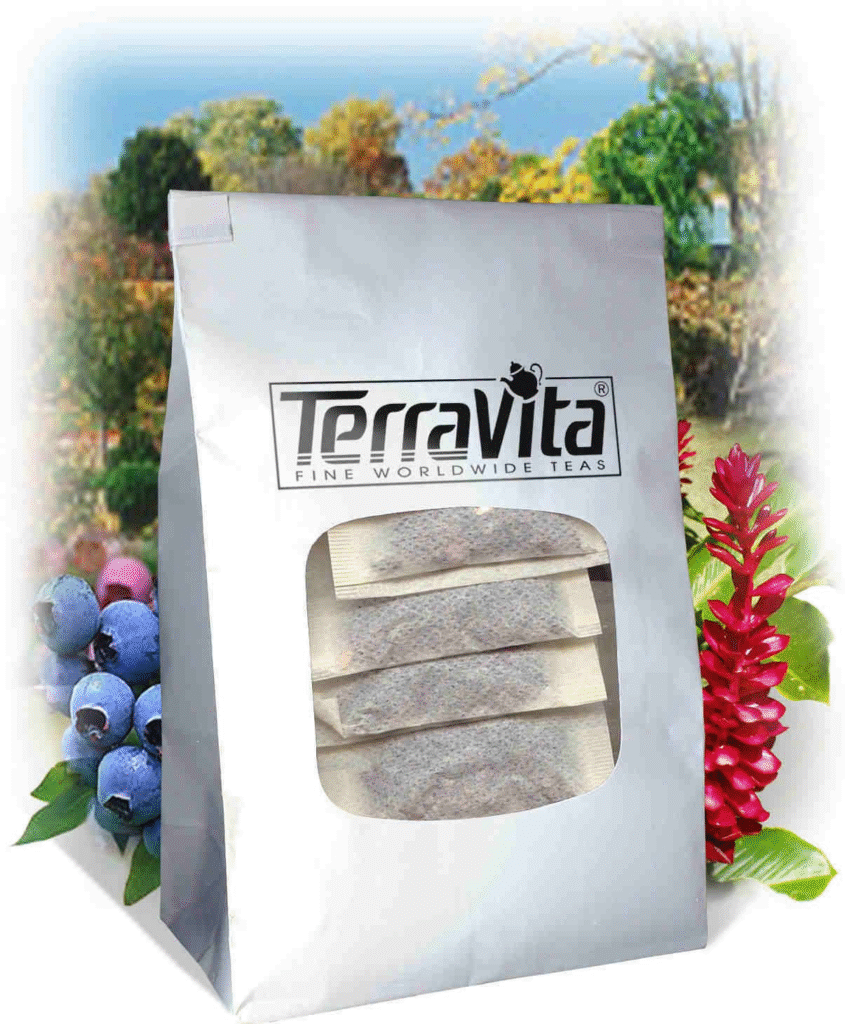
7. Rooibos
While not specifically a sleep tea, rooibos is a caffeine-free option that won’t interfere with your sleep cycle. It’s rich in antioxidants and has been shown to have stress-reducing properties.
A 2011 study in the Journal of Ethnopharmacology found that rooibos tea had significant stress-lowering effects in animal models.
To prepare rooibos tea, steep it for 5-7 minutes. Its naturally sweet, nutty flavor makes it enjoyable on its own or with a splash of milk for a comforting bedtime drink.
Recommended Product:
TOG999, 135 Premium Red Rooibos Tea Bags – These Rooibos Leaves are grown naturally. The leaves are picked at a decent time, dried in the sun, ground with years of experience to the best tea size, and carefully packed. Ensure unsurpassed quality for our customers. Sugar-Free, Caffeine Free, Gluten Free, Vegan, No Artificial Flavors, No Colors Added.
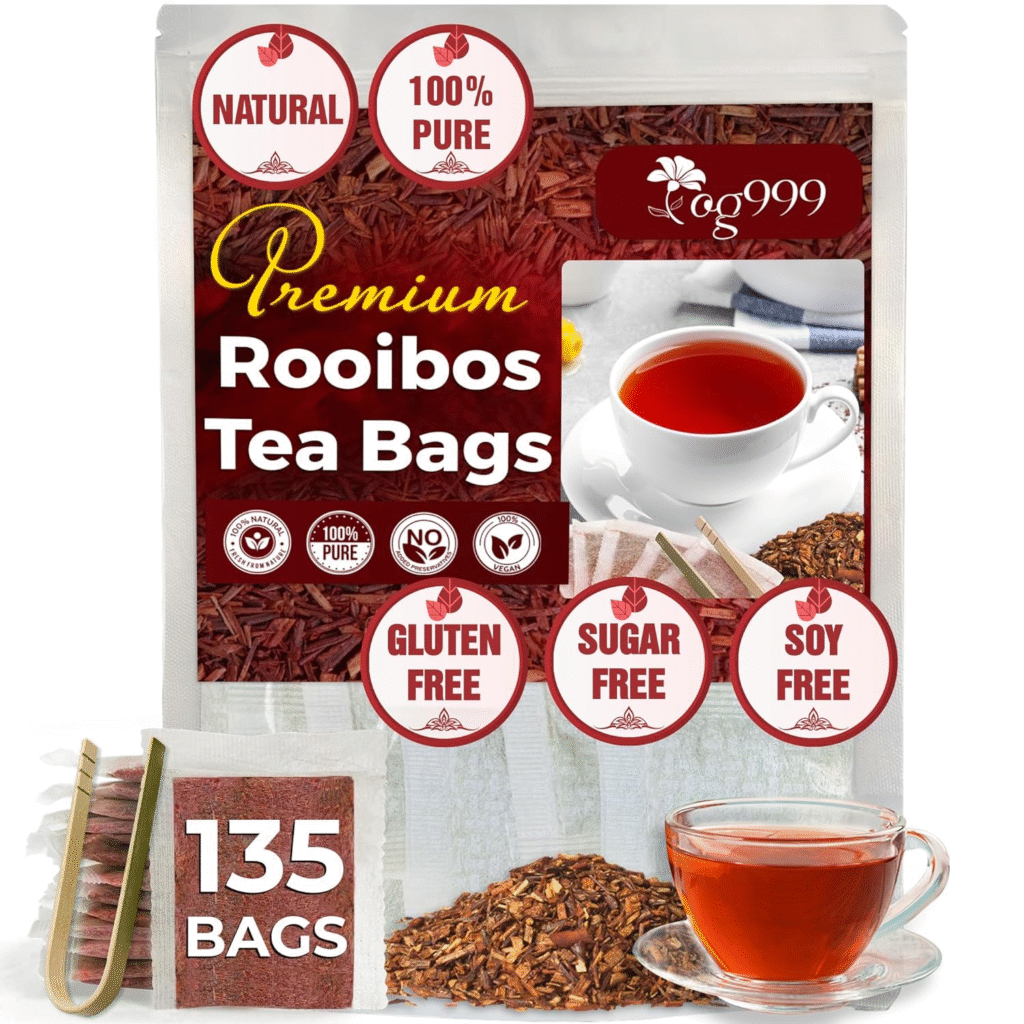
8. Holy Basil (Tulsi)
Holy basil, also known as tulsi, is an adaptogenic herb that helps the body resist stress. By lowering cortisol levels, it can help prepare your body for sleep and improve overall sleep quality.
A 2014 study in the Journal of Ayurveda and Integrative Medicine found that holy basil had significant anti-stress effects and potential as a natural choice to synthetic anxiolytic drugs.
To prepare holy basil tea, steep the leaves or a tea bag for 5-7 minutes. Its flavor is slightly spicy and sweet, making it a unique addition to your nighttime routine.
Recommended Product:
FGO Organic Tulsi Holy Basil Tea – This premium tea bags are constructed of Abacá Hemp Fiber Paper. They are free of dyes, adhesive, glue and chlorine bleach. No staples, strings, bags or extra waste – just delicious tea.
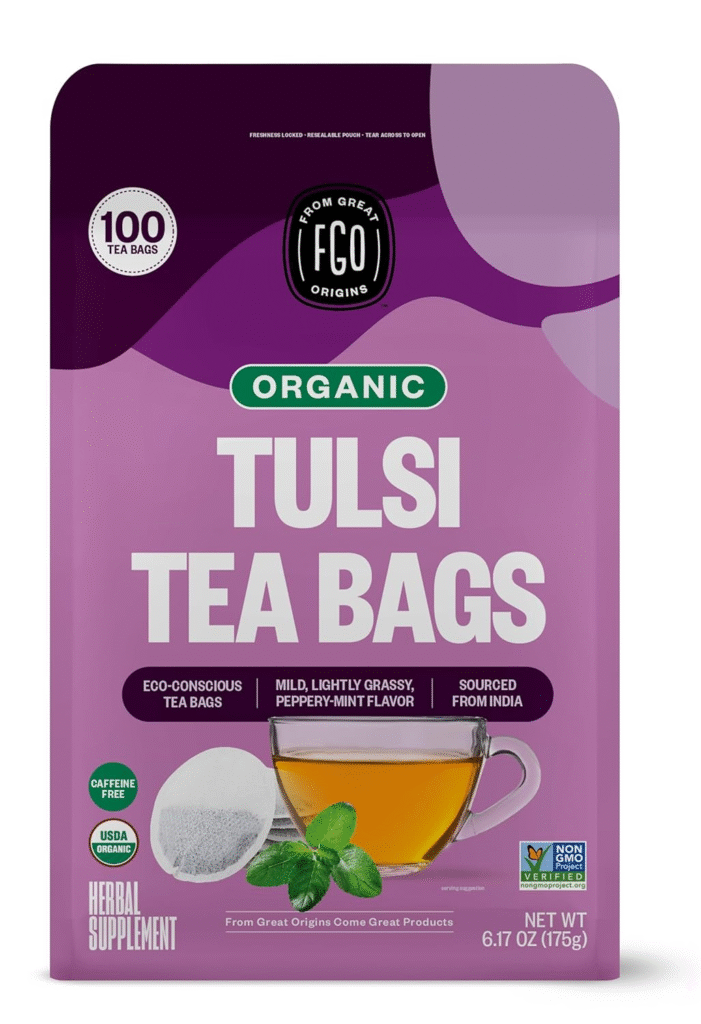
9. Ashwagandha
Ashwagandha is an herb commonly used in Ayurvedic medicine to treat insomnia and stress. It’s known for its ability to lower cortisol levels and promote relaxation.
A 2019 study in the journal Cureus found that ashwagandha root extract improved sleep quality and sleep onset latency in patients with insomnia.
To prepare ashwagandha tea, steep it for 5-10 minutes. Its earthy flavor can be strong, so consider blending it with other herbs or adding honey to taste.
Recommended Product:
Tempoak Ashwagandha Root Tea – Ashwagandha tea is a great source of antioxidants, rich in iron and other minerals, and made from one of the most revered herbs in India. The ingredients in this tea help support energy during the day, while also helping you get a good night’s sleep. This tea has an earthy, somewhat pungent, slightly creamy taste sensation to your cup. Honey or maple syrup are a great way to add sweetness.
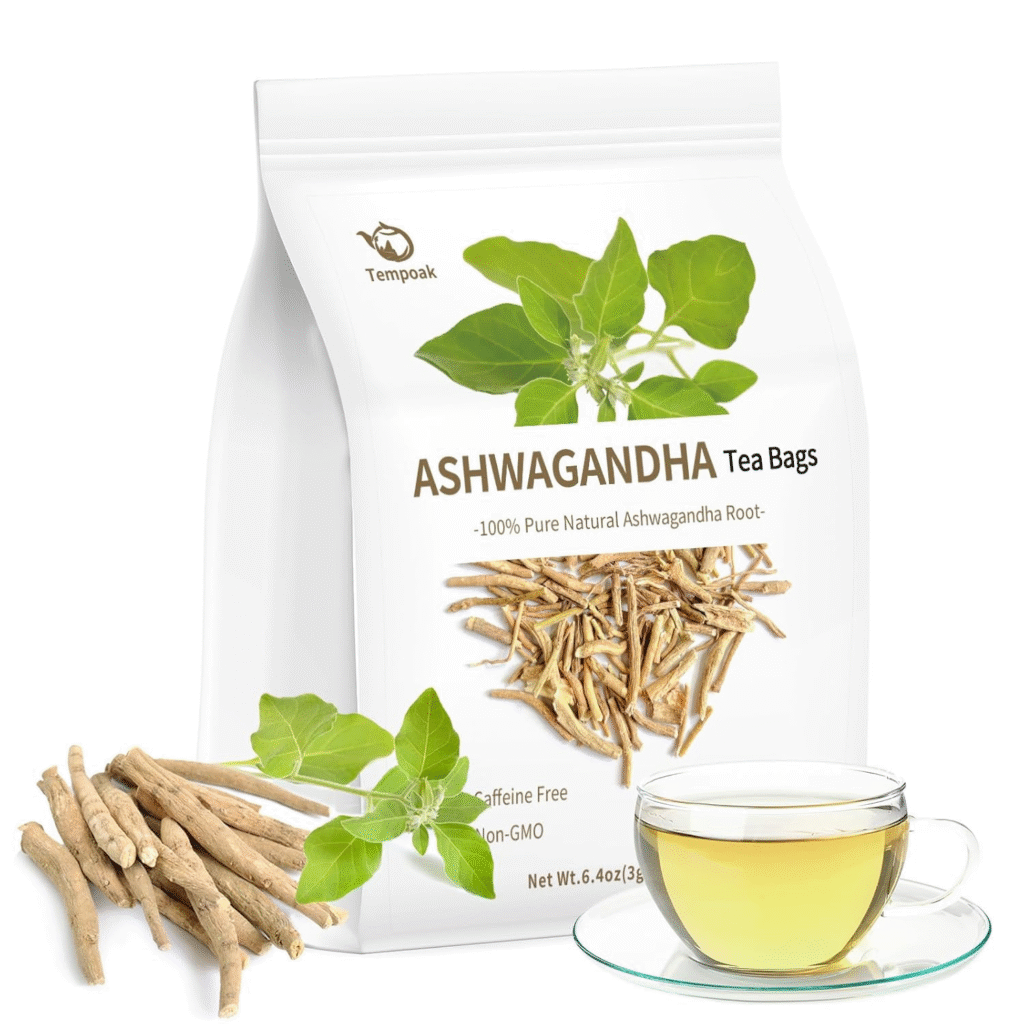
10. Hops Flower
While hops are best known as a beer ingredient, they’ve been used to treat insomnia for centuries. Hops contain a compound called methylbutenol, which has sedative effects.
A 2012 study in the journal PLOS One found that hops, in combination with valerian, significantly improved sleep quality in university students.
To prepare hops flower tea, steep it for 5-10 minutes. Its bitter flavor pairs well with sweeter herbs like chamomile or lemon balm.
Recommended Product:
Wildfield herbs Hops Flowers Herbal Tea – This hoptea tea has an ideal balance of taste, high standard of quality and aroma. These Dried Hops Flowers have been grown, carefully harvested, specially dried and specially packaged to ensure that they reach the customer in the freshest and most fragrant condition.
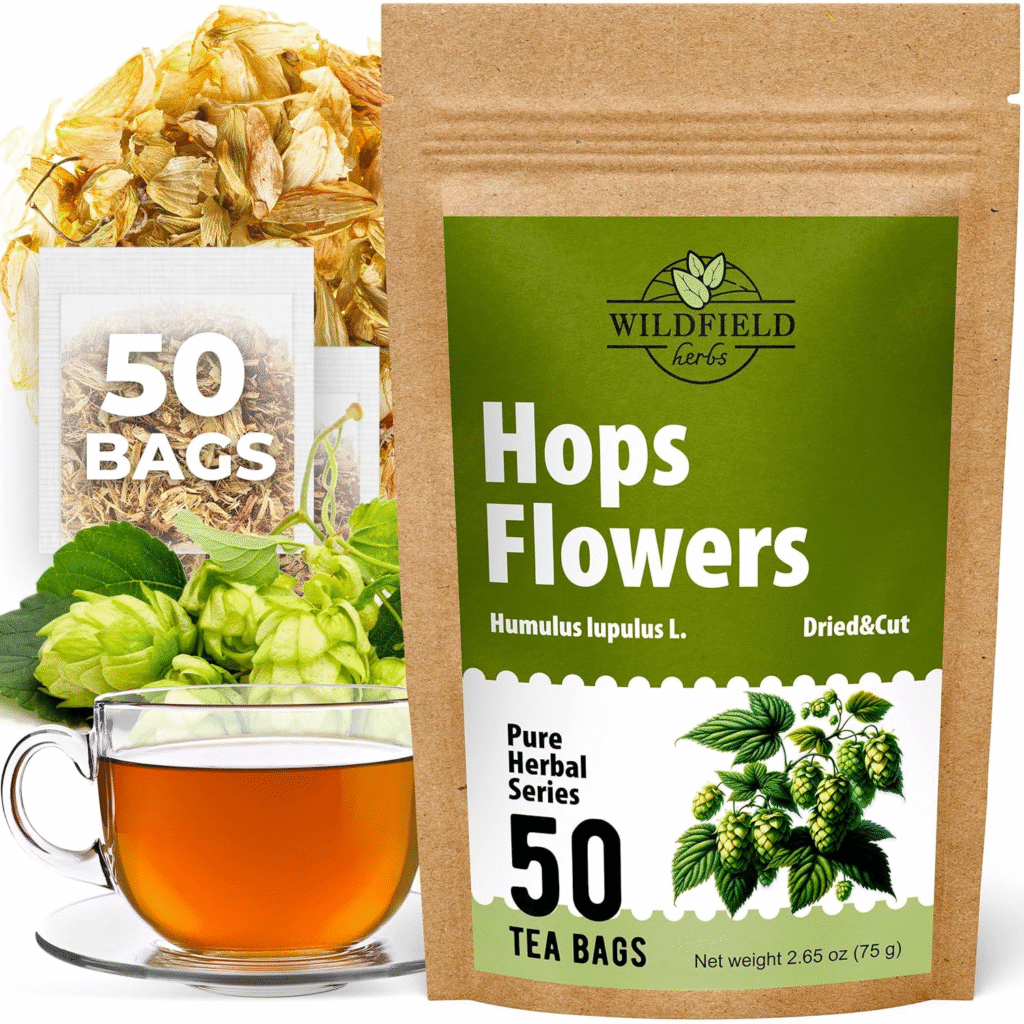
Creating Your Perfect Bedtime Blend
Don’t be afraid to experiment with blending different sleep-promoting teas to create your perfect nighttime brew. A combination of chamomile, lavender, and passionflower, for example, can provide a potent sleep-inducing effect while offering a more complex flavor profile.
Here are some popular blends to try:
- Chamomile and Lavender: This classic combination offers a double dose of relaxation.
- Valerian Root and Hops: These two powerful sleep aids work synergistically.
- Lemon Balm and Passionflower: A calming blend that also tastes great.
- Rooibos and Holy Basil: A caffeine-free option with adaptogenic benefits.
- Ashwagandha and Magnolia Bark: An Ayurvedic and Traditional Chinese Medicine fusion.
Everyone’s body reacts differently to herbs, so what works for one person might not work for another. It’s worth trying different combinations to find what works best for you.
Maximizing the Benefits of Your Sleep Tea
While calming teas can be a wonderful aid for better sleep, they work best as part of a comprehensive sleep hygiene routine. Here are some tips to maximize the benefits of your bedtime brew:
- Consistency is key: Try to have your sleep tea at the same time each night to help regulate your body’s internal clock.
This consistency can strengthen the association between the tea ritual and sleep, making it easier for your body to recognize when it’s time to wind down.
- Limit caffeine: Avoid caffeinated teas or other stimulants in the afternoon and evening.
Even if you don’t feel the effects of caffeine, it can still interfere with your sleep quality.
As a general rule, try to avoid caffeine at least 6 hours before bedtime.
- Create a sleep-friendly environment: Keep your bedroom cool, dark, and quiet.
Consider using blackout curtains, a white noise machine, or earplugs if necessary.
The ideal sleep temperature for most people is between 60-67°F (15-19°C).
- Establish a wind-down routine: Pair your tea with other relaxing activities like reading, gentle stretching, or meditation.
This can help signal to your body that it’s time to transition from the activities of the day to rest and sleep.
- Mind your timing: Drink your tea at least an hour before bed to avoid nighttime bathroom trips.
This allows enough time for your body to process the liquid while still benefiting from the tea’s calming effects.
- Be patient: It may take a few weeks of consistent use to notice significant improvements in your sleep quality.
Herbal remedies often work subtly and cumulatively, so don’t get discouraged if you don’t see immediate results.
- Pay attention to your body: Notice how different teas affect you.
Some people might find certain herbs more effective than others, or you might find out about that a particular blend works best for you.
- Consider your diet: What you eat throughout the day can impact your sleep.
Try to avoid heavy meals close to bedtime and be mindful of foods that might disrupt your sleep, such as spicy or acidic foods.
- Exercise regularly: Regular physical activity can improve sleep quality, but try to finish vigorous exercise at least a few hours before bedtime.
- Manage stress: Incorporate stress-reduction techniques into your daily routine, such as mindfulness meditation, yoga, or journaling.
These practices can complement the calming effects of your bedtime tea.
- Limit screen time: The blue light emitted by phones, tablets, and computers can interfere with your body’s production of melatonin, the sleep hormone.
Try to avoid screens for at least an hour before bed, or use blue light filtering apps or glasses if you must use devices.
- Consider your sleep position: Your sleep posture can affect your sleep quality.
Experiment with different pillows or sleeping positions to find what’s most comfortable for you.
- Be mindful of supplements: If you’re taking any medications or supplements, check with your healthcare provider to confirm they don’t interact negatively with your chosen sleep teas.
- Create a relaxing bedtime playlist: Compile a list of soothing songs or nature sounds to play softly as you sip your tea and prepare for bed.
- Practice gratitude: As you drink your tea, reflect on positive aspects of your day.
This can help shift your mind from stress or worries to more positive thoughts, promoting relaxation.
While these teas can be powerful sleep aids, they’re most effective when combined with good sleep habits and a healthy lifestyle. If you continue to struggle with sleep issues despite these measures, it’s important to ask with a healthcare professional to rule out any underlying sleep disorders or health conditions.
Frequently Asked Questions
What is the best tea for sleep?
While person responses vary, chamomile tea is often considered one of the best teas for sleep because of its long history of use and scientific backing. However, valerian root, lavender, and passionflower are also excellent options.
How long before bed should I drink sleep tea?
It’s generally recommended to drink sleep tea about 30 minutes to an hour before bedtime. This allows time for the active compounds to take effect while minimizing the need for nighttime bathroom trips.
Can I drink sleep tea every night?
Most herbal sleep teas are safe for nightly consumption. However, it’s always best to ask with a healthcare provider, especially if you have any existing health conditions or are taking medications.
Does green tea help with sleep?
While green tea has many health benefits, it contains caffeine and is not typically recommended as a sleep aid. For better sleep, opt for caffeine-free herbal teas instead.
Can sleep teas interact with medications?
Some herbal teas can interact with certain medications. For example, valerian root may interact with some sedatives.
Always ask with your healthcare provider if you’re taking any medications.
Is chamomile tea safe during pregnancy?
Chamomile tea is generally considered safe during pregnancy when consumed in moderation. However, it’s always best to ask with your healthcare provider before adding any herbal teas to your diet during pregnancy.
How does lavender tea promote sleep?
Lavender tea contains compounds that may increase gamma-aminobutyric acid (GABA) in the brain, which can help reduce anxiety and promote relaxation, leading to better sleep.
Can rooibos tea help with insomnia?
While rooibos tea isn’t specifically a sleep aid, its caffeine-free nature and potential stress-reducing properties may contribute to better sleep for some individuals.
Does ashwagandha tea have side effects?
Ashwagandha is generally well-tolerated, but some people may experience side effects like upset stomach or diarrhea. It’s best to start with a small amount and ask with a healthcare provider if you have any concerns.
How does hops tea compare to other sleep teas?
Hops tea is known for its sedative effects and may be particularly effective when combined with valerian root. However, its bitter taste might be less palatable than other sleep teas for some people.
Key Takeaways:
- Herbal teas can be effective natural sleep aids because of their calming compounds and ritual aspects.
- Popular sleep-promoting teas include chamomile, valerian root, lavender, and passionflower.
- Experimenting with different tea blends can help you find the most effective combination for your needs.
- Establishing a consistent bedtime tea ritual can enhance the sleep-inducing effects.
- For best results, mix your tea routine with good sleep hygiene practices and a healthy lifestyle.
- Always ask with a healthcare provider before adding new herbal remedies to your routine, especially if you have existing health conditions or are taking medications.
Disclaimer
The information contained in this post is for general information purposes only. The information is provided by 10 Soothing Teas to Help You Sleep Better and while we endeavor to keep the information up to date and correct, we make no representations or warranties of any kind, express or implied, about the completeness, accuracy, reliability, suitability or availability with respect to the website or the information, products, services, or related graphics contained on the post for any purpose.

